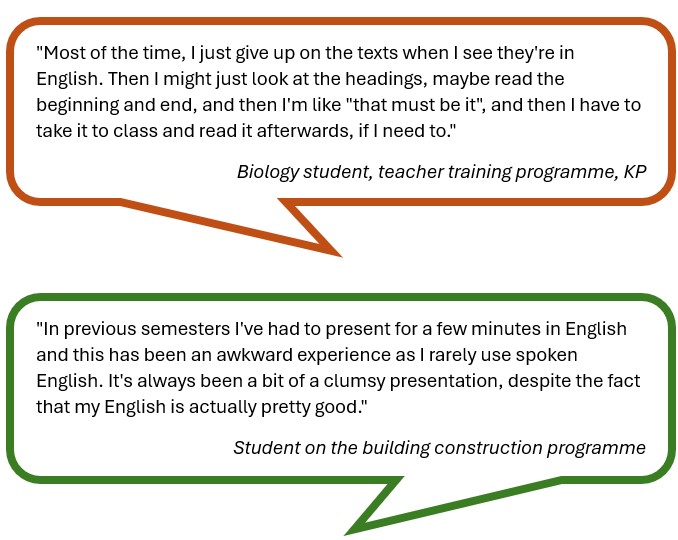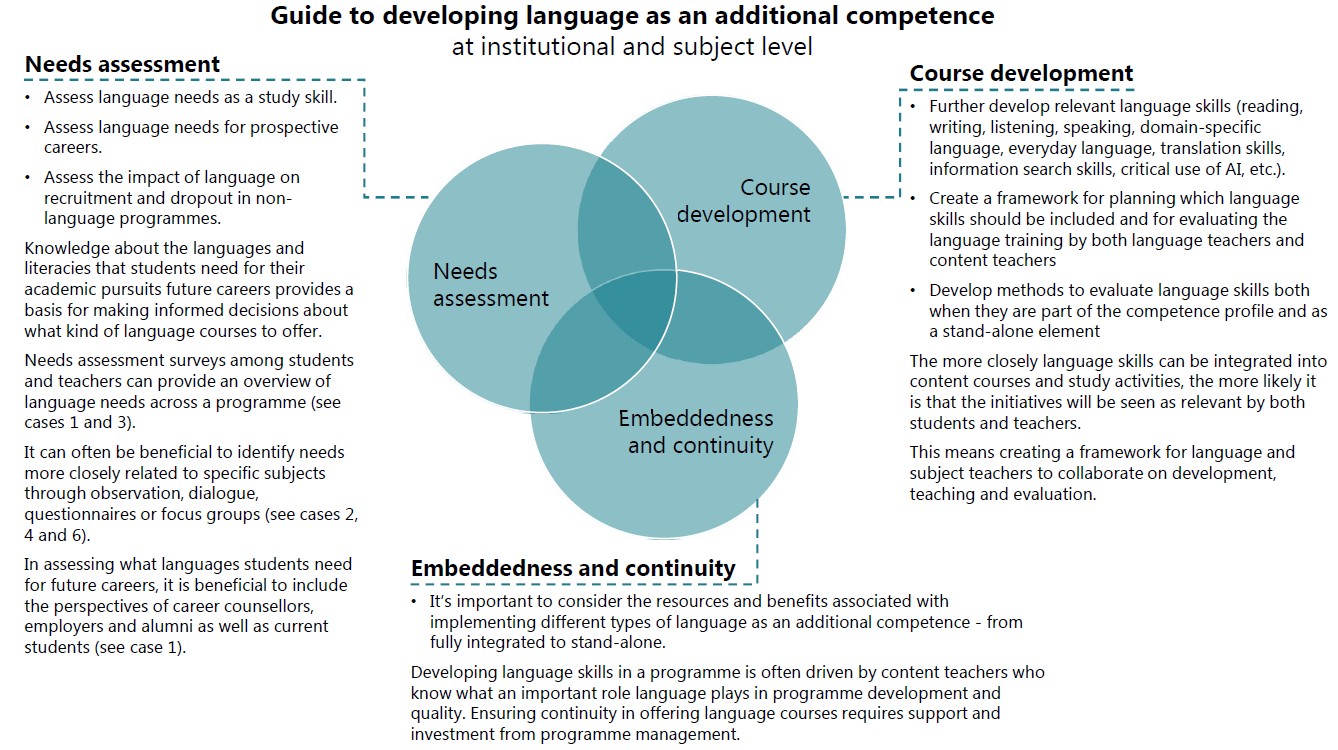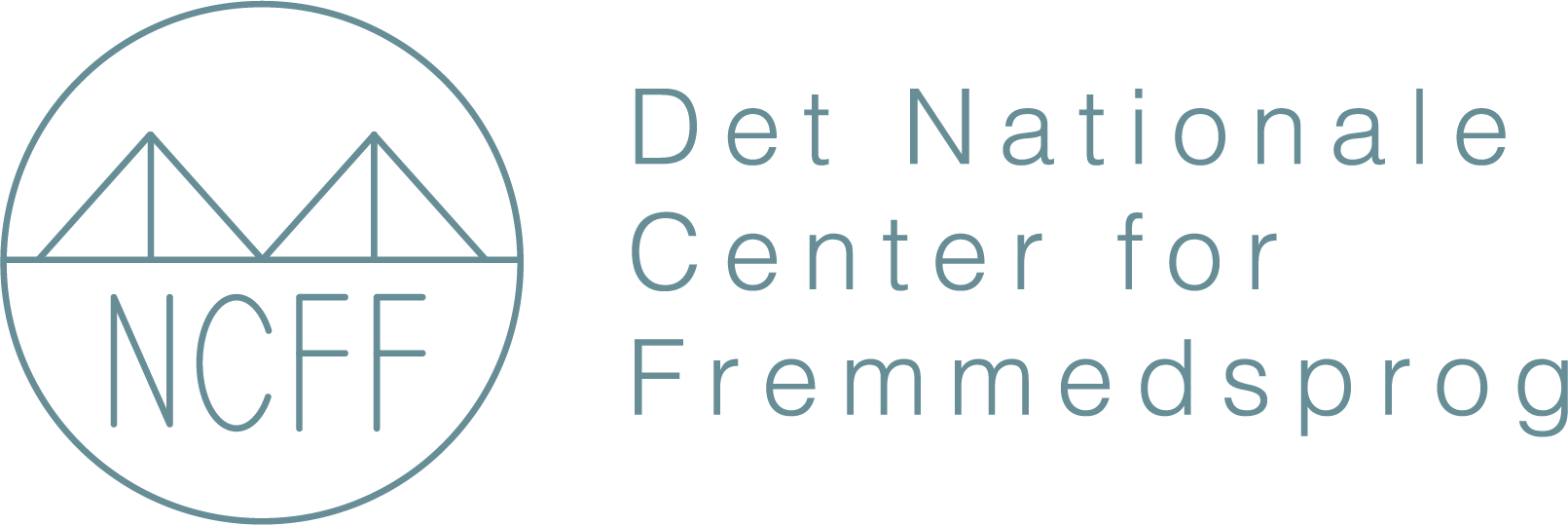Identifying needs for language as an additional competence
As many different languages and sub-skills can be relevant for students, it is useful in higher education to gain insight into students' language needs through administering needs analyses of various kinds (surveys, focus groups, individual interviews, learning diaries, etc.). Information about students' language needs for different purposes (studying in Denmark, studying abroad, future jobs, etc.) and from different perspectives (students, teachers, counsellors, study boards, etc.) can be used to make decisions about which language initiatives should be adopted and where.
The scope of the different needs assessments in the MUST project has varied from case to case. For example, comprehensive needs analyses were administered for the case on the law programme at UCPH, where the goal was to develop credit bearing courses in French as an additional competence, either in the form of language modules linked to a compulsory BA subject or as a completely new elective course originally intended to be offered at MA level. This aim of working with new course concepts for the programme was defined by the contact person at LAW and based on an initial review of the previous range of language courses offered at LAW, observation of subject teaching, interviews with alumni and meetings with key employers. In addition, a questionnaire survey sent out to students was useful to gauge the level of interest in this type of course. Finally, focus group interviews with selected students from the survey provided more detailed information about the two possible course concepts before their actual design was approved by the study board.

At both LAW, as described above, and DKDM, where language courses have been aimed at new students across the institution's programmes, it was necessary to carry out a fairly comprehensive needs analysis. In other cases, where the aim was to direct language training more locally towards a specific subject in a programme, the actual course content was primarily defined through dialogue with subject teachers, supplemented with needs assessment questionnaires as an integral part of the development and testing phase.
Results from the student needs assessments revealed a wide range of needs and wants for upgrading existing language skills or acquiring skills in completely new languages (see Kraft et al., 2023). Not surprisingly, there was great demand from students to upgrade their English skills, whether in relation to studying at UCPH, studying abroad or intended future career paths. Students also expressed interest in other foreign languages, but these tended to be more localised and were often linked to individual student views of study and career profile (see Nissen, 2024).
Guidelines for developing language as an additional competence
The guidelines below represent a simplified model of the work carried out on the MUST project and include the three steps that we consider to be crucial when working with language as an additional competence. In the accompanying “case descriptions”, you can find more detailed descriptions of how each case worked with these three phases.
Funded by
Models for teaching language as an additional competence was funded by The National Centre for Foreign Languages.
The project was co-funded by the Centre for Internationalisation and Parallel Language Use.
Period: January 2020 until December 2023


